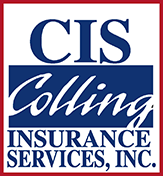RV storage is a regular part of owning and RV. Unless and RV owner has a big spread of property and a sizable driveway, or a back barn area as some do on a rancher type plot, storage of an RV in a rental facility is going to be the more likely solution. Some neighborhoods are very picky with their HOA rules and restrictions, so owners have no choice but to utilize a storage place for parking and RV when not in use. That in turn raises a number of risks.
Parking an RV for an extended period of time in a remote location makes it a target, especially if not registered. Local thieves are well aware that RVs often travel with an assortment of appliances to make it a "home away from home." Those appliances then become valuable for a thief to help himself to, and parked RV theft is unlikely to be reported right away. So it’s an ideal situation for a thief.
The extent of coverage that will be provided by an RV insurance policy depends heavily on whether the RV owner chose an option that included personal damage and loss. Not every insurance policy does so, and lower cost plans tend to leave out personal loss and focus more on just liability. So it’s important for an RV owner to read his current plan carefully before storage and, if additional protection is needed, get the current plan amended or initiate a new, replacement policy. Trying to solve this issue after an RV has been stripped is going to end up being an out-of-pocket loss.
RV owners in the Lakewood, CO area can easily get good advice on storage risk and other issues specific to RVs from Colling Insurance Services Inc. Our agents are well versed on RV property loss issues, storage resources, and how property insurance works for an RV owner. Call us to find out more.




 Email an Agent
Email an Agent


 Click to Call
Click to Call Get Directions
Get Directions